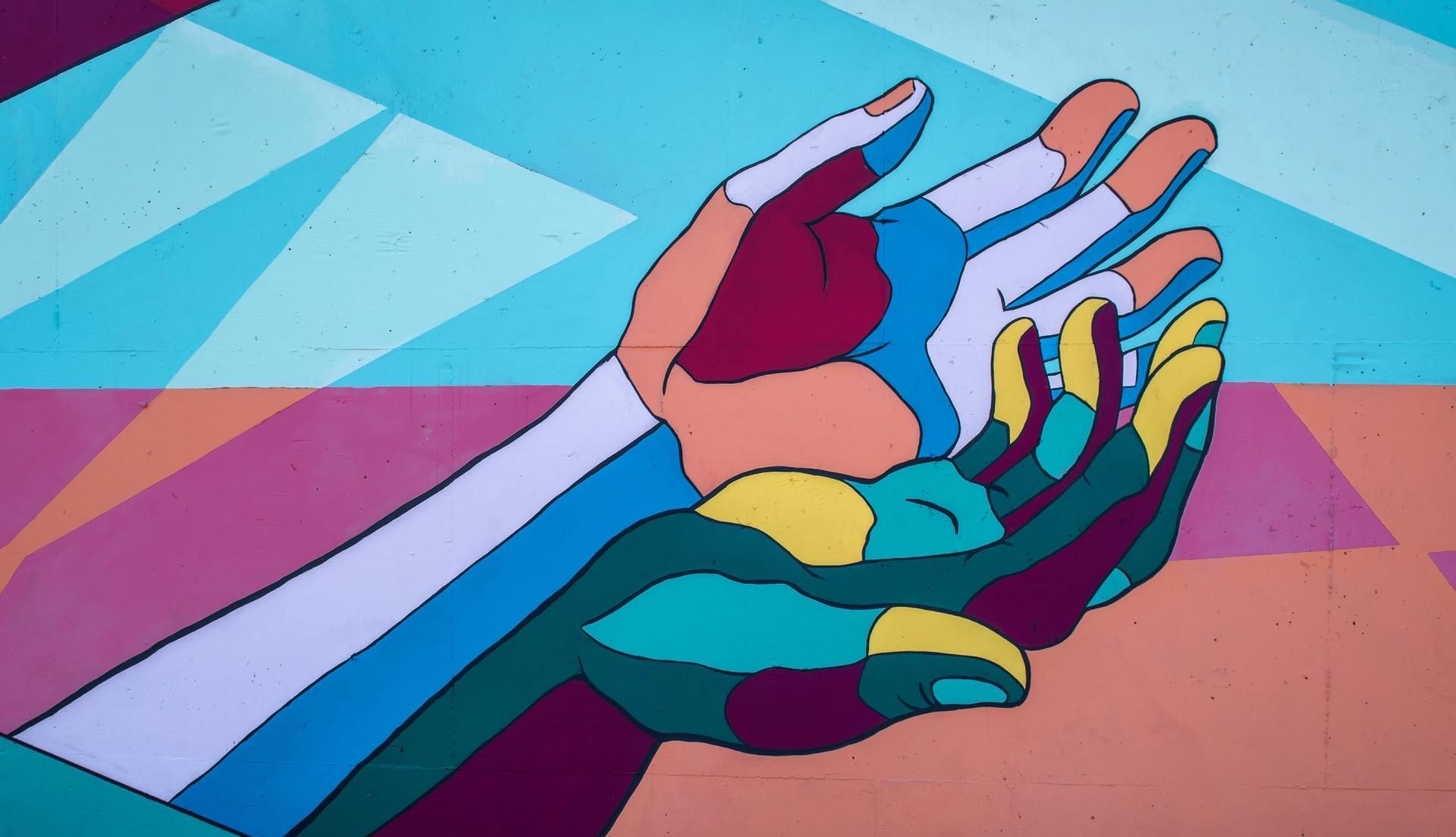
Personal Support Network Communication Tool
Autoimmune & Autoinflammatory Arthritis (AiArthritis) diseases affect the person diagnosed and all those in the patients' immediate support network. Those people also need support and understanding so, in turn, they know how to best help those diagnosed.
This guidance was developed in response to family members (significant others, siblings, children of parents with AiArthritis diseases) requesting help to manage their stresses, concerns, and emotional issues associated with caring for someone living with AiArthritis diseases. We hope if patients work together with the people in their support network to better understand everyone’s support needs, communication and relationships could improve. This initial tool was developed in conjunction with our AiArthritis Voices 360 Talk Show.
Creating a Support Tool - for Your Personal Social Support Network
The suggestions below were developed based on patient experiences. This information should not replace advice from other professionals who help navigate the patient journey. The outline for this tool was started during the AiArthritis Voices 360 Talk Show Episode 71: Supporting Me, Supporting You, Supporting Us. You can listen to this full episode HERE.
When a person is diagnosed with an AiArthritis disease, there's a lot of emotion they deal with and often they turn to their loved ones (family, significant other, friends) for support. But remember, those people are also adjusting to the situation and depending on their personality traits and coping skills they all are likely to react differently and, as a result, may need support themselves.
As we move through our disease journey, needs grow - for all involved. For example, often the disease is "invisible", which means because it is triggered by the immune system, the pain felt may be from inflammation and not necessarily the result of existing damage (there may not be any damage, that's the goal!) Also, fatigue and other "Auto" (autoimmune or autoinflammatory disease) features are often present. When traditional methods of treating fatigue and pain don't work, this can confuse both the patient and their support network. It can also result in misunderstandings and frustrations. This is why it is so important to listen and learn what everyone in the support network needs!
Supporting Me, Supporting You, Supporting Us Tool
Download this fillable form that includes all the steps below:
Starting your Support Tool
- Step 1: Who is in your personal support network?
This would include the person diagnosed and any other person who has a supporting role in their journey (family members, significant others, friends, co-workers, etc.)
Example: Jerry (husband), Mary (best friend), Jack and Judy (neighbors/friends), people at work, Betty (sister) etc.
- Step 2: What do you want or need from each person in your Support Network to do to support you? Ask yourself, "What do I feel I need from each of these people?" (family members, significant others, friends, co-workers, etc.) Write down your expectations (or wish list) below. Start by saying who it is (general group or a specific person) and then list what you ideally need from them. Include examples of things you think they could do to offer support.
Examples:
- Deb explains she relies on her husband to help with important medical decisions, friends for emotional support, and church members for assistance with food when she has challenges cooking.
- Friends - I would like my friends to understand I have limitations sometimes and be more thoughtful around offering to help with little things to help me. Maybe when we are out at a public place, they could think about finding places where I have a place to sit. Or offering to carry my arm bag.
- Step 3: Part I: What are the needs of the other people in your Personal Support Network? Remember, people close to us may also be adjusting to the situation. Depending on their personality traits and coping skills it’s possible they may need support themselves.
- Put the same names of the people you mentioned in Steps 1 and 2 in the space below.
- Then answer this question, “What may they need for support?”
Part II (Come back and fill this out after Step 4): Next, try asking each of these people to also complete this section.
Questions to help guide the conversation:
- Ask them how they are feeling about (examples - the diagnosis, associated challenges, your role in navigating the healthcare journey)?
- Then ask them if there is anything they need to support them in this journey. (examples - the disease itself/symptoms/disease management)
The key here is to remember that support and associated needs are going to look very different for each person. Don't assume anyone knows what each person needs - ask!
- Step 4: Communicate Your Support Needs to Your Personal Support Network. Now that you have clarified who is giving what support currently, communicate their own role and others’ role in your Personal Support Network.
- Clarify and reiterate with each personal support network member what their expectations and responsibilities are. Have a conversation with them about what this support looks like, how often you may need it, and how you will let them know that you need that support.
- Give them the insight of where you are getting your other support from so that they understand the group dynamics and can help to facilitate support.
- Step 5: Other than the support that your Personal Support Network can provide, is there anything else you need? For each person in the Personal Support Network, including YOU, the patient, ask, "Do I still feel like I need more support?" If the answer is yes, add what else you feel you may need below. Then write ideas about how you can fill that void. It may require joining a support group or speaking with someone outside of your inner circle (like a counselor or therapist).
- Step 6:
Re-evaluate your support needs on a regular basis (Maybe every 3 to 6 months).
Is there anything right now that is making you feel like you aren’t as supported as you can be? Is there a need for a shift in roles in your Support Network? Have your needs changed and an increase or decrease in support is needed? Consider the evolution of needs, which will include disease journey shifts and new people entering your Personal Support Network.
Tips - Be patient with one another.
- Listen and don't assume anyone knows what the other person needs.
- Validate each person understands their role and associated expectations.
- Remember that everyone has a different level of support capability. Personality traits, personal experience, ability to cope, and other factors can contribute.
We hope this helps you start a Support Network aid for you and those who are part of your journey with AiArthritis diseases.
AiArthritis started this conversation in 2020 and 2021 in several of our AiArthritis Voices 360 Talk Show episodes. More recently, in the March 6th, 2022 episode Supporting You, Supporting Me, Supporting Us, Deb, Estela, and Tiffany went 'back to the table' to continue discussing the dynamics of support - including needs of the patient as well as others in the patient's support circle. During the discussion, they started to develop a support tracking tool to help patients and families/friends better assess their needs.
Estela, the sister of Juana, diagnosed with various conditions including lupus, rheumatoid arthritis, and fibromyalgia, talks about the families reaction - which involved worry, stress, and fear. But each person's reaction also was dependent on other factors, like personality traits and how each person handles stressful situations. Estela, who works in the healthcare space, stepped up to give supportive knowledge. Their mother felt fear and guilt, wondering if she did something to cause the illness. Yet a different family member “everything is going to be fine” mindset. Listen to all the episodes leading up to the development of this tool.
Listen to the following related AiArthritis Voices 360 Talk Show episodes on our website or where ever you 'do' podcasts.
Ep 48: Support, it's not so simple.
Patrice, Rick, and Effie discuss diverse needs for different experiences.






